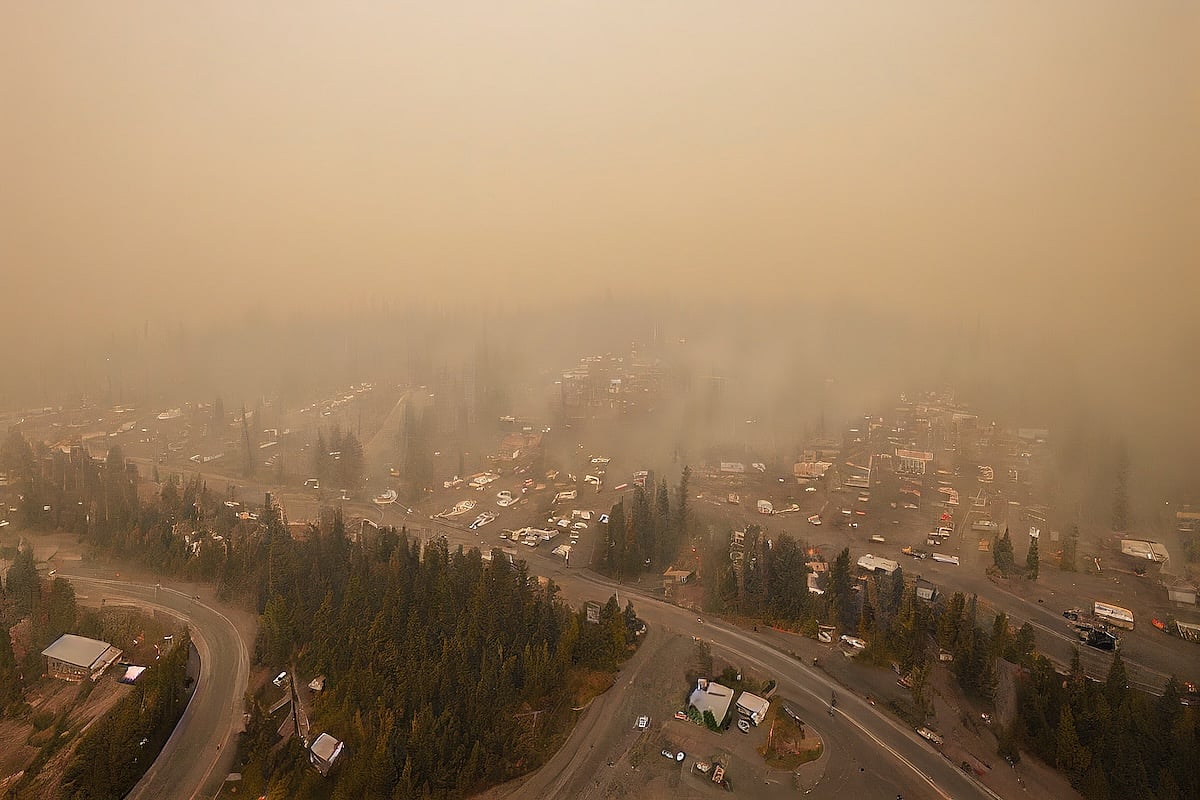Patient Resources
Get Healthy!
New Study Links Wildfire Smoke to Premature Births
- November 5, 2025
- I. Edwards HealthDay Reporter

Wildfire smoke may do more than harm the lungs.
New research shows it could also raise the risk of premature birth.
A large study from the University of Washington found that pregnant people exposed to wildfire smoke were more likely to deliver early.
The findings, published Nov. 3 in The Lancet Planetary Health, are based on more than 20,000 births across the United States between 2006 and 2020.
About 10% of babies in the U.S. are born early, which can lead to lifelong health problems. While air pollution has already been linked to preterm birth, this is one of the biggest studies so far to look specifically at wildfire smoke as a contributor, researchers said.
“Preventing preterm birth really pays off with lasting benefits for future health,” said lead author Allison Sherris, a postdoctoral researcher at the University of Washington in Seattle.
“It’s also something of a mystery. We don’t always understand why babies are born preterm, but we know that air pollution contributes to preterm births, and it makes sense that wildfire smoke would as well," she added in a news release. "This study underscores that wildfire smoke is inseparable from maternal and infant health.”
Researchers measured how often pregnant people were exposed to wildfire-related fine particle pollution, known as PM2.5, and how much they were exposed.
They found that:
The risk of preterm birth was higher when exposure happened in the second trimester, especially around week 21.
Later in pregnancy, the biggest risk came from high levels of wildfire smoke, above 10 micrograms per cubic meter.
The strongest link was seen in the Western U.S., where wildfire smoke has become more frequent and intense.
“The second trimester is a period of pregnancy with the richest and most intense growth of the placenta, which itself is such an important part of fetal health, growth and development,” said co-author Dr. Catherine Karr, a professor of pediatrics and environmental health.
"So it may be that the wildfire smoke particles are really interfering with placental health," Karr added in a news release. "Some of them are so tiny that after inhalation they can actually get into the bloodstream and get delivered directly into the placenta or fetus.”
Researchers say more work is needed to understand exactly how wildfire smoke affects pregnancy, but the evidence is now strong enough to take action for pregnant people.
"There’s an opportunity to work with clinicians to provide tools for pregnant people to protect themselves during smoke events," Sherris said. "Public health agencies’ messaging about wildfire smoke could also be tailored to pregnant people and highlight them as a vulnerable group."
More information
The U.S. Environmental Protection Agency has more on the effects of wildfire smoke on pregnancy.
SOURCE: University of Washington, news release, Nov. 3, 2025

